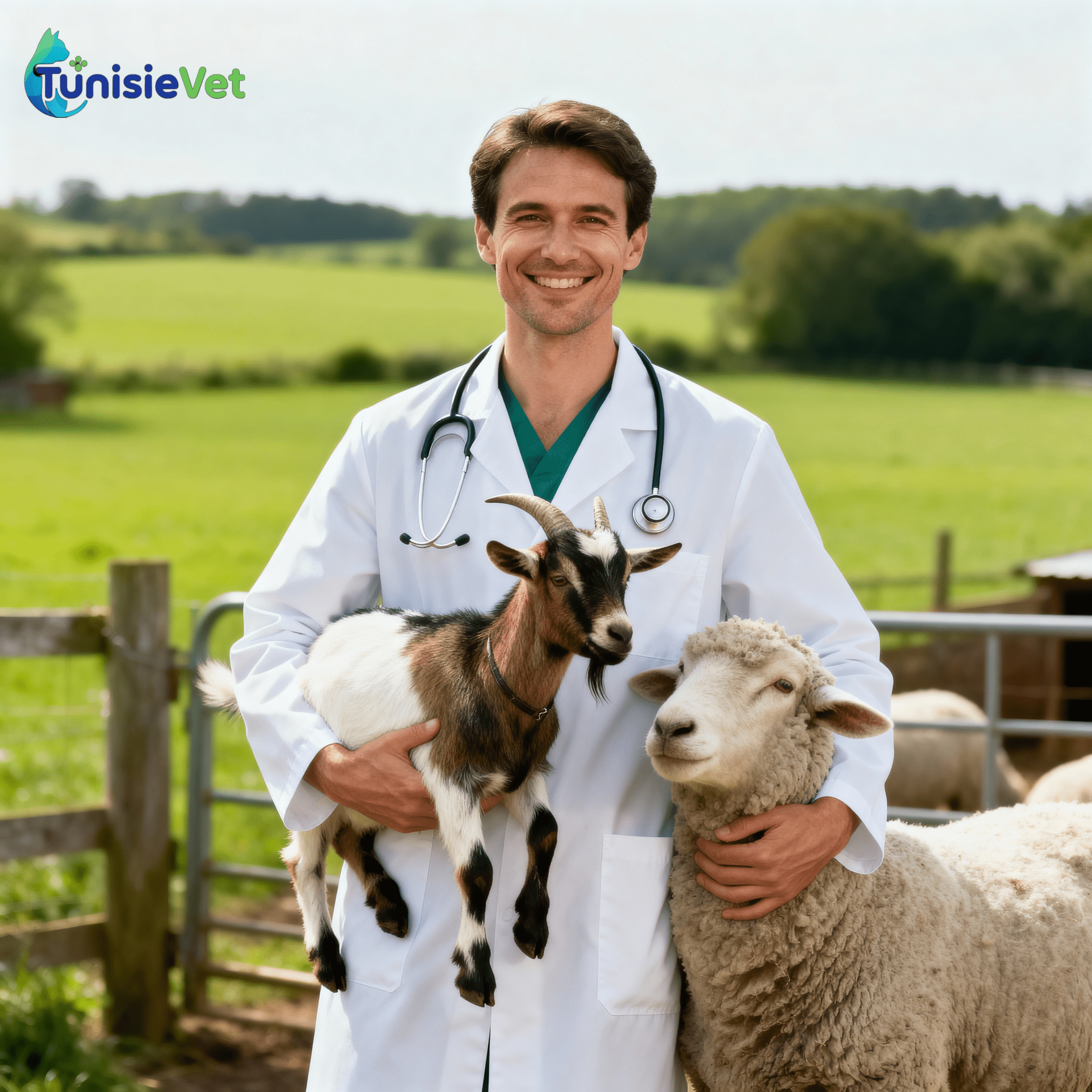🐑 Sheep and goat veterinary medicine: complete guide for breeders

Sheep and goat veterinary medicine concerns the health of sheep and goats. These species, essential to pastoral and dairy farming, require a specific veterinary approach to guarantee productivity, well-being and profitability of farms. In this article, we present good health management practices, common diseases, and prevention strategies to maintain a healthy herd.
✅ Importance of sheep and goat veterinary medicine
The health of sheep and goats directly influences :
- The dairy and meat production
- The fertility of the herd
- The genetic quality
- The profitability of breeding
- The safety food
Regular veterinary monitoring helps to prevent diseases, reduce economic losses and improve productivity.
🛡️ Health prevention and vaccination plan
Prevention is the key to efficient breeding. The veterinarian draws up an annual health plan including:
| Objective | Recommended action |
|---|---|
| Vaccination | Enterotoxemia, brucellosis (depending on regulations), clostridia |
| Deworming | 2 to 4 times per year depending on the parasitic risk |
| Biosecurity | Disinfection of buildings, quarantine of new animals |
| Monitoring health | Regular check of weight, teeth, hooves, general condition |
🐐 Frequent diseases in sheep and goats
1. Internal and external parasitosis
- Causes: strongyles, tapeworm, coccidia, ticks, lice.
- Consequences: weight loss, diarrhea, drop in production.
- Prevention: reasonable deworming + pasture rotation.
2. Brucellosis
- Contagious diseaseaffecting reproduction.
- Obligation of veterinary surveillance and screening according to legislation.
3. Pneumonia
- Favored by the cold, humidity and overcrowding of sheepfolds.
- Prevention: ventilation and hygiene of buildings.
4. Mastitis (in dairy goats)
- Infection of the udder → reduction in milk production.
- Prevention: milking hygiene + disinfection.
5. Footrot
- Hoof disease common in sheep farming.
- Solutions: regular trimming + foot baths.
🍼 Nutrition and balanced diet
A good diet strengthens immunity:
- Quality hay + cereals + minerals
- Permanent access to clean water
- Supplements during gestation and lactation period
- Salt block and vitamins required
🐑 Reproduction and veterinary monitoring
A good reproduction program improves profitability:
- Early detection of heat
- Ultrasound monitoring
- Prevention of infectious abortions
- Management of lambing and kidding
👨⚕️ Role of the small ruminant veterinarian
The veterinarian is a production partner. It is used for:
✅ Diagnosis and treatment
✅ Vaccination and prevention
✅ Nutrition advice
✅ Reproduction management
✅ Optimization of breeding performance
✅ Conclusion
The sheep veterinary medicine and caprine is essential to ensure the performance of farms. Thanks to regular veterinary monitoring, good nutrition and strict biosecurity rules, it is possible to protect the herd, increase productivity and reduce economic losses.
